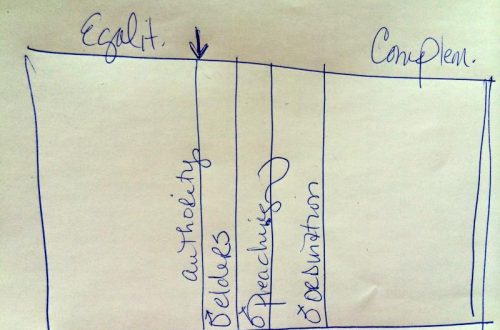Empathy! Can we succeed in politics or ministry without it?
The culture is changing. Fast. Modern to Postmodern. And so is the way we connect with people, whether in politics or ministry. If we want people to trust and follow Mitt, Barak or Jesus it's no longer sufficient, in most cases, to simply present information/truth claims. People. Want. Empathy. What does that mean and how do we deliver?
The culture is changing. Fast. Modern to Postmodern. And so is the way we connect with people, whether in politics or ministry. If we want people to trust and follow Mitt, Barak or Jesus it's no longer sufficient, in most cases, to simply present information/truth claims. People. Want. Empathy. What does that mean and how do we deliver?
The essence of empathy is Identifying with another person emotionally. We seek to understand what they are feeling. We seek to show by our words and body language that we understand their sorrows, frustrations, joys and longings.
Some of us are wired to be more empathetic than others, But the good news is empathy can be learned. We can discipline ourselves to listen carefully. Note what others are feeling emotionally. Then mirror their emotion back to them.
Mirroring is the essence of empathy. If others are excited we smile and match their facial expression. We talk with the similar energy and delight. If others are sad we show concern, even sorrow in our facial expression and tone of voice. Research shows that people who are the most successful at helping other soothe their feelings are the most charming and popular. This shows the value of using humor, expressing tenderness.
Postmodern audiences are looking for resonance/connection. So someone who gives words to their own longings and desires . Identification is a powerful tool in communication. Both Obama and Romney have been caught saying things to their donors that probably created empathy and resonance behind closed doors but alienated voters they needed when they were made public.
In 2008 Obama made headlines when he spoke about people in small towns who have lost jobs and “get bitter, they cling to guns or religion or antipathy toward people who aren't like them or anti-immigrant sentiment or anti-trade sentiment as a way to explain their frustrations.” Recently, Romney described the 47% of Americans who receive some sort of government check as those who are…”dependent upon government, who believe that they are victims, who believe the government is responsible for them, who believe they are entitled to health care, to food, to housing, to you-name-it.”
To people outside the high priced fundraisers these remarks sound very UNempathetic. Contemptuous at worst, dismissive at best. Unfortunately for Romney, they seem to confirm the narrative that his opponents have been telling—with his Dad being governor of Michigan and his wildly successful ride at Bain Capital, he cannot empathize with working people who struggle to make ends meet.
There were a number of working people in trouble who testified at the Republican convention how Romney had kindly helped them. But he still seems to struggle to communicate true empathy—to speak as a fellow-traveller. This perceived lack of empathy lies at the heart of Romney’s likability gap.
In today’s postmodern culture we all need to cultivate empathy. Authentic empathy.Jesus was the ultimate in identification: “the Word became flesh and dwelt among us.” Surely he has “borne our griefs and carried our sorrows.” The incarnation was the supreme expression of empathy. And as followers of Christ we are called to “weep with those who weep” and “rejoice with those who rejoice" (Romans 12:15).
Empathy is a command. And what God commands he provides. As we pocket our cell phones and really listen, as we walk through the sorrows God allows into our lives, we can comfort others with the comfort we’ve been comforted with. Other good suggestions for learning and showing empathy are offered here.



